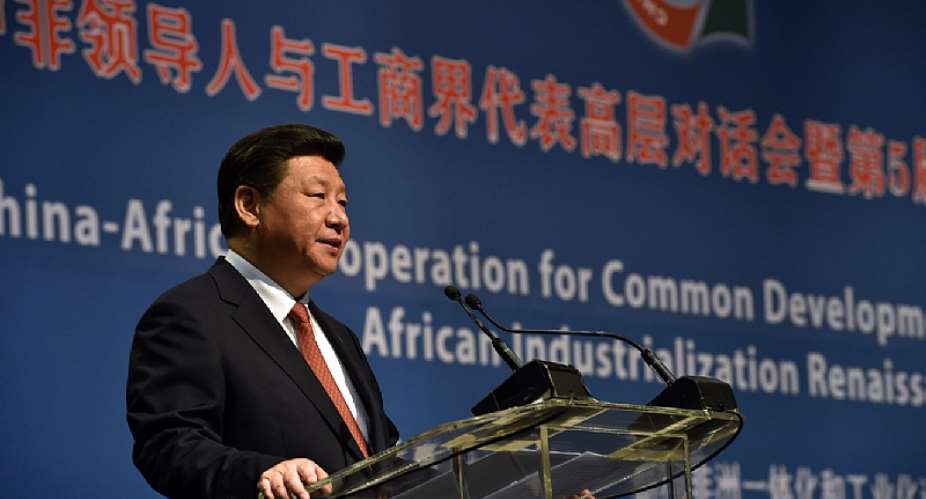The article below by Caleb Slayton, director for the U.S. Air Force Special Operations School, Africa course, unmasks the self feeding loop of US anti-China propaganda. “The U.S. narrative misjudges the full scope of China’s influence in Africa,” according to the author. The narrative attacking China’s relationship with African nations is blinding our elected officials, so called academics, and the general citizenry from understanding the contributions China is making to Africa. This false narrative, intense, widespread, and bi-partisan, has created a dangerous defect in US strategic policy toward China and Africa. As a result, President Trump only sees Africa as a pawn in a global game to stop China’s influence on the continent. To the dismay of many Africans, the US, unlike China, lacks any serious policy that would assist African nations in pursuit of developing their nations.
Excerpts:
“According to the U.S. strategic narrative on China in Africa, Beijing intends to steal Africa’s resources, secure corrupt business transactions, and pursue low-quality infrastructure projects. American officials argue that China’s political and diplomatic maneuvers yield little good for Africa and ultimately intend to indebt the continent to China’s bidding. This narrative is misleading. It has served to develop a crippling ignorance of the changing nature of information warfare, China’s weapon of choice. The narrative has also masked the successful means by which China has become a partner of almost every country on the continent and garnered their support at the international level. Perhaps worst of all, the focus on China is inattentive to the needs and ambitions of African partners, the key stakeholders in U.S.-Africa partnerships…
As the director from 2012 to 2016 of the Africa Theater Course for Special Forces out of Hurlburt Field, Florida, I engaged with hundreds of military members, government employees, analysts, operators, and practitioners directly engaged on the African continent. Every sidebar conversation or most student interjections on the topic of China maintained a similar skewed perception of China in relation to Africa. China’s development projects were all “broken,” the projects hired mostly Chinese laborers, its merchandise was low-grade, China’s aim was to deplete Africa of its resources, the communications infrastructure was a tool of Chinese control, and all of China’s aid was a debt liability. Any mention of potentially beneficial partnership with China was laced with a political, social, or economic spoiler. This consistent negative narrative aligns to many Department of Defense and Department of State talking points….
“African countries draw inspiration from China’s rise. Beijing’s success is more profound than any criticism the United States levels against China’s internal social, religious, and political oppression…
“Africa Isn’t Buying Washington’s Message on China
In Africa, Beijing has demonstrated that it has a lot to offer. Washington, by contrast, appears to offer only criticism. The U.S. narrative against China-Africa activities misrepresents China’s strategy, underestimates its influence, and downplays what a majority of Africa’s population really thinks about China partnerships and great-power competition. The current facts on the ground already give China impressive influence and access to political, economic, and communication sectors across Africa.”





 We’ll no longer tolerate your empty, unwarranted attacks – TUC blasts Prof Adei
We’ll no longer tolerate your empty, unwarranted attacks – TUC blasts Prof Adei
 Bawumia donates GHc200,000 to support Madina fire victims
Bawumia donates GHc200,000 to support Madina fire victims
 IMF to disburse US$360million third tranche to Ghana without creditors MoU
IMF to disburse US$360million third tranche to Ghana without creditors MoU
 Truck owner share insights into train collision incident
Truck owner share insights into train collision incident
 Paramount chief of Bassare Traditional Area passes on
Paramount chief of Bassare Traditional Area passes on
 Two teachers in court over alleged illegal possession of BECE papers
Two teachers in court over alleged illegal possession of BECE papers
 Sunyani: Victim allegedly shot by traditional warriors appeals for justice
Sunyani: Victim allegedly shot by traditional warriors appeals for justice
 Mahama vows to scrap teacher licensure exams, review Free SHS policy
Mahama vows to scrap teacher licensure exams, review Free SHS policy
 Government will replace burnt Madina shops with a new three-story, 120-store fac...
Government will replace burnt Madina shops with a new three-story, 120-store fac...
